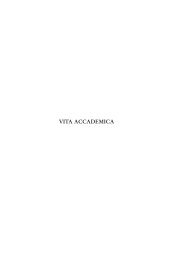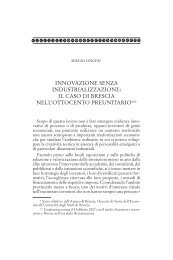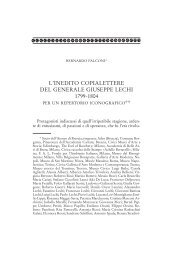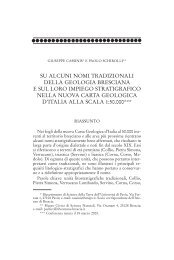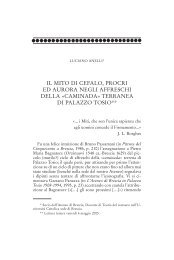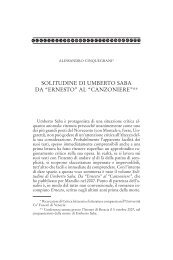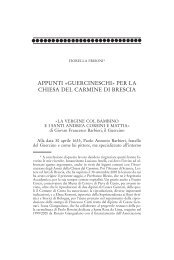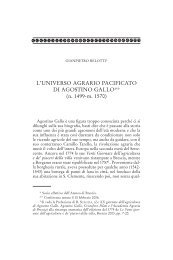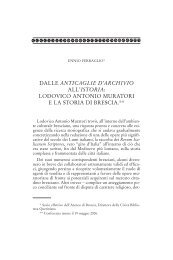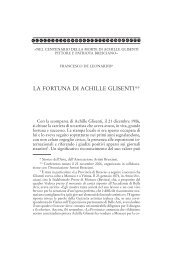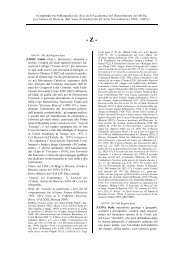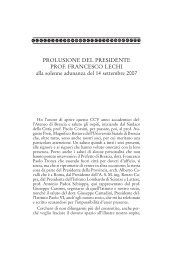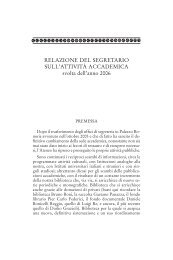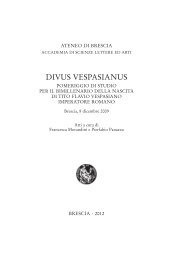do handel's cantatas matter? - BOLbusiness
do handel's cantatas matter? - BOLbusiness
do handel's cantatas matter? - BOLbusiness
You also want an ePaper? Increase the reach of your titles
YUMPU automatically turns print PDFs into web optimized ePapers that Google loves.
11] «Cantate, que me veux-tu?», or: Do Handel’s <strong>cantatas</strong> <strong>matter</strong>? 223<br />
those of the earlier solo <strong>cantatas</strong>. Among the earlier works, an<br />
unsettled mode of expression – using wide and dissonant intervals,<br />
chromatic harmonies, and explosions of fioratura in<br />
recitatives – is particularly true of solo <strong>cantatas</strong>, like Il delirio<br />
amoroso, that depict the voice of a woman 25 .<br />
By studying the style features of this and other dated <strong>cantatas</strong>,<br />
it is possible to suggest earlier or later dates for works<br />
without a fixed chronology. La Lucrezia, for example, is surely<br />
an early work, whether or not its composition predates<br />
Handel’s arrival in Rome, and the copying bill that appears in<br />
Ruspoli’s accounts on 31 August 1709, long after Handel had<br />
left Rome, clearly represents the creation of a later copy for<br />
archival or gift purposes 26 . The style features of Il delirio<br />
amoroso may also put Johann Mattheson’s criticism of Handel’s<br />
early style into perspective. He writes in 1740 that when<br />
Handel arrived in Hamburg in 1703, «he composed very long,<br />
long arias, and really interminable <strong>cantatas</strong>, which had neither<br />
the right kind of skill nor taste, though complete in harmony,<br />
but the lofty schooling of opera soon trimmed him into other<br />
fashions» 27 . Mattheson’s melodic ideal was for short, tuneful<br />
and natural melodies, in which «the French should be imitated<br />
more than the Italians» 28 . Not that Mattheson didn’t<br />
compose in the Italian, virtuosic style, but more typically, as<br />
in his opera Cleopatra (1704), his arias are strophic and syllabic<br />
with a folklike, somewhat galant, character.<br />
25 For a more detailed discussion of these stylistic traits, see HARRIS,<br />
Handel as Orpheus, passim.<br />
26 KIRKENDALE, Ruspoli Documents, pp. 268-269 (under title «O Numi<br />
eterni»).<br />
27 Grundlage einer Ehren-Pforte, p. 93.<br />
28 GEORGE J. BUELOW, An evaluation of Johann Mattheson’s opera,<br />
Cleopatra (Hamburg 1704), in Studies in Eighteenth-Century Music: A Tribute<br />
to Karl Geiringer on his Seventieth Birthday, ed. H. C. Robbins Lan<strong>do</strong>n,<br />
New York, Oxford University Press, 1970, pp. 92-107 (95); see also<br />
JOHANN MATTHESON, Cleopatra, in Das Erbe Deutscher Musik 69, ed.<br />
George J. Buelow, Mainz, B. Schott’s, 1975.



